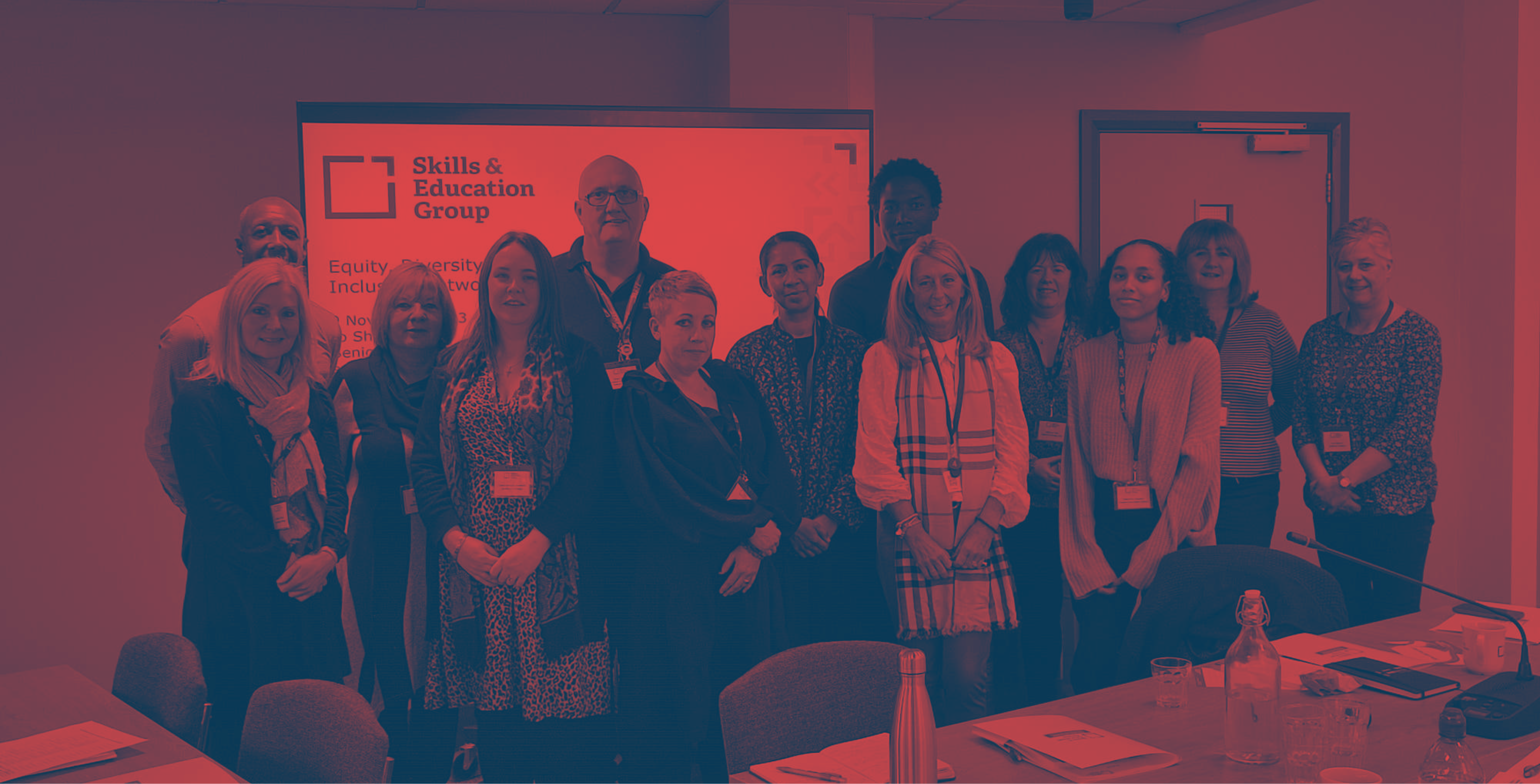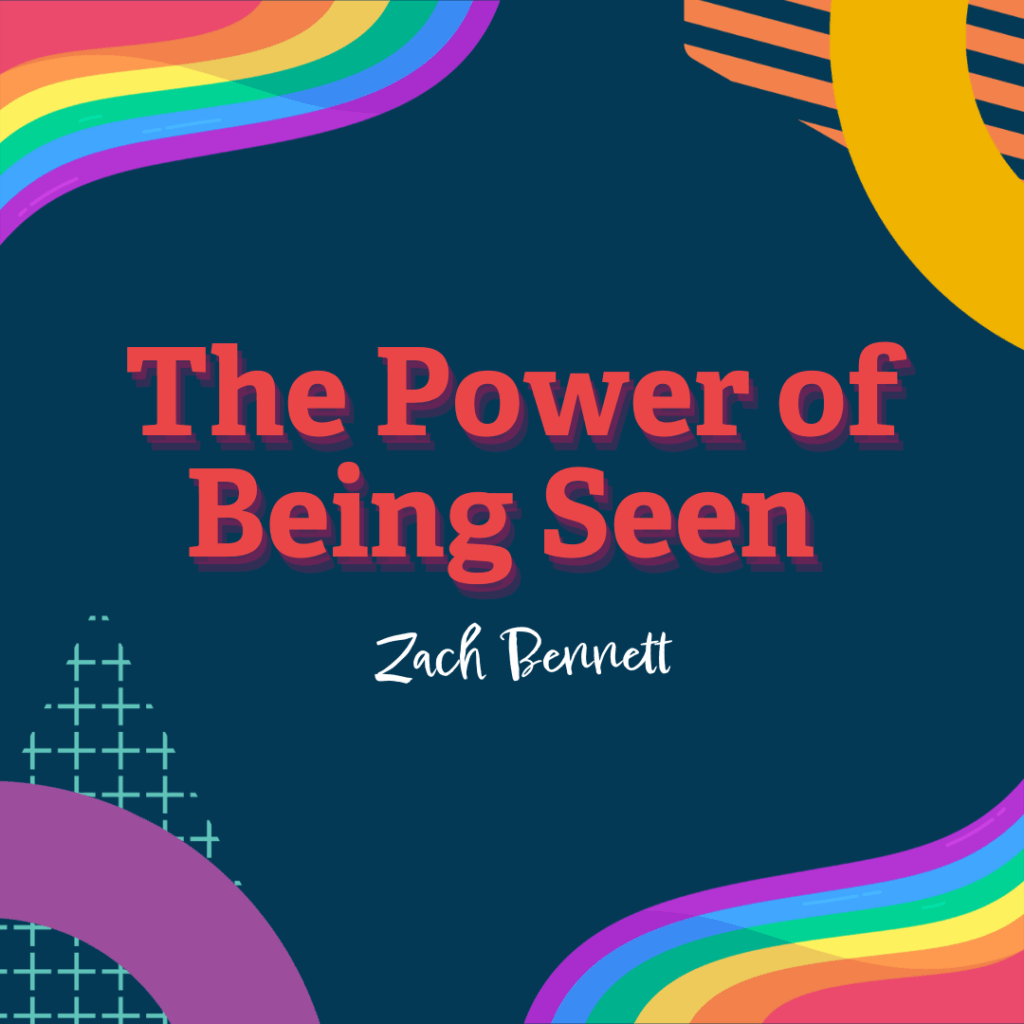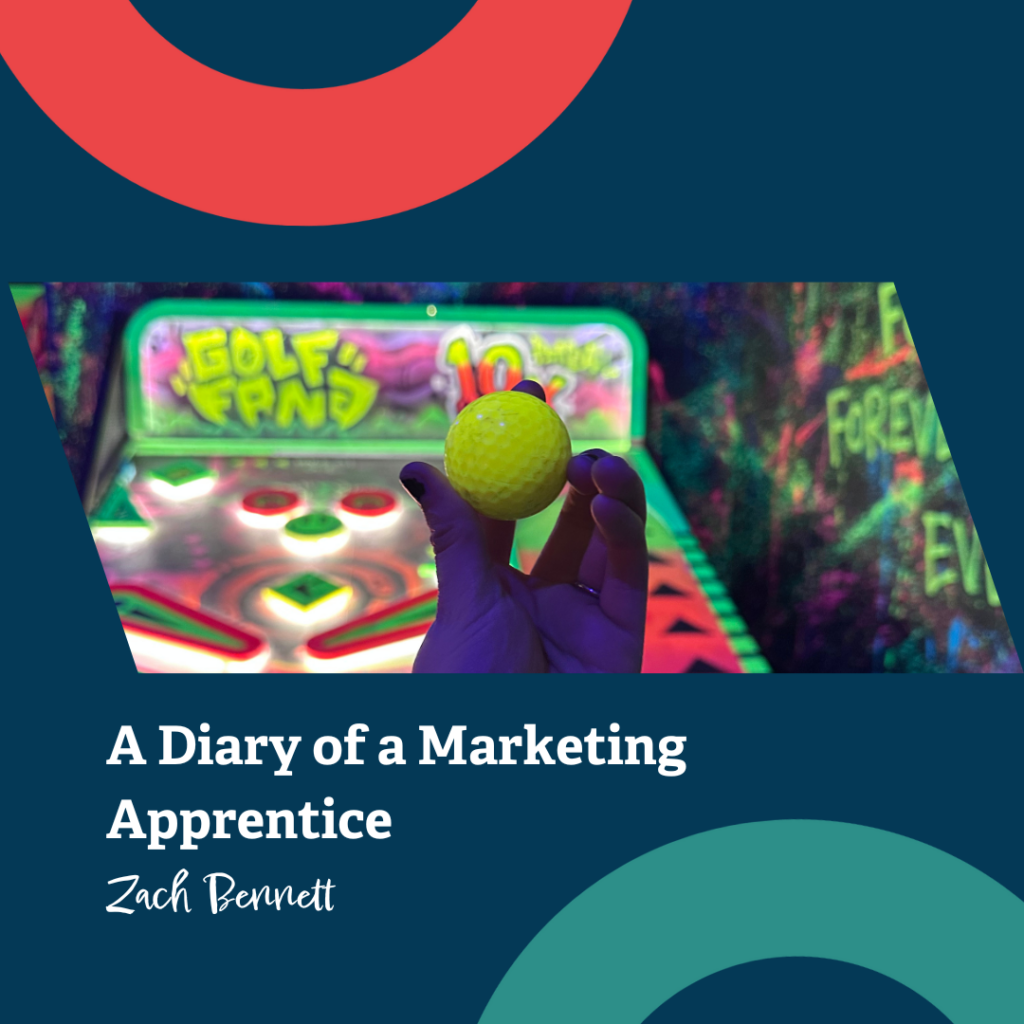22 November 2023
The Skills and Education Group’s first Equity, Diversity and Inclusion (EDI) Network of the 2023/24 academic year took place on Thursday 9 November at Robins Wood House in Nottingham.
Facilitated by Jo Shirley, Senior Professional Development and Learning Manager, the network brought together staff with responsibility for EDI at several further education and skills organisations.
The event was supported by Derek Cockfield, Interim Head of Corporate Partnerships, and Melvin Lyons, Equity Diversity and Inclusion Programme Manager, from WorldSkills UK.
Dr Louise Karwowski, Director of Education at Cognassist, also joined the event to deliver a presentation about neurodiversity.
Read on for the key takeaways and topics of discussion from this network.
The challenges of discussing gender identity
One of the first topics of discussion focused on gender identity and the language used to talk about this. Brian, Landmarks Specialist College, said that many staff are unfamiliar with terms like ‘cisgender’, used to refer to people whose gender identity corresponds with the sex registered for them at birth. He also said some staff are dismissive of learners who transition gender and would rather “brush difficult topics under the carpet”, while some learners are unempathetic to peers experiencing transitions. Vicki, Independent Safeguarding Consultant, added that this area can be an “absolute minefield” for staff.
Brian shared solutions that have been used by his college, such as an ‘Is it okay to say that?’ forum for staff and crib sheets with lists of different sex and gender-related terms. He also said it is important to reassure staff that it is okay to use the wrong word by mistake, as long as they then learn from this.
In Series Two Episode Three of the Let’s Go Further podcast, our guests Jake and Hannah Graf MBE gave their advice for supporting learners through gender transitions. Listen to the episode here.
Facilitating difficult conversations
Participants also discussed how to facilitate difficult conversations involving learners. Charlotte, Inspire Education Group, said her organisation have delivered sessions around incel culture and the views spread by influencers such as Andrew Tate. She said it is important to let students speak even if their views are unethical. Rather than shutting them down, it’s better to ask them how reached their viewpoint. She also recommended labelling language or behaviour rather than the learner themselves – for example, by saying “That’s racist language” rather than “You’re being racist.”
Derek, WorldSkills UK, gave his tips for ensuring conversations remain inclusive. These include setting ground rules before the conversation and using your organisation’s policies to set firm boundaries – learners will already be aware of these so cannot question them. Derek said you shouldn’t be afraid of having challenging conversations even if you’re not an expert on the topic; you can position yourself as a facilitator rather than an expert.
Hoshna, Leicester College, added that you can tap into the knowledge of your learners and learn from them during these conversations, while Karenza, The Futures Group, recommended being aware of events happening in the wider world to prepare yourself for these conversations. Furthermore, Angela, Buxton and Leek College, said discussing topics such as the current Israel-Gaza war is daunting and requires bravery.
Diagnosis is a lightbulb moment – suddenly their life makes sense.
Supporting neurodiverse learners
The next part of the session was delivered by Dr Louise Karwowski from Cognassist. Louise provided an overview of neurodiversity and gave examples of neurodiverse conditions, such as Autism, ADHD and Dyslexia. She made the point that we are all neurodiverse, regardless of whether we have a diagnosed condition or not, as our brains all process information differently.
Louise then invited the group to share their challenges related to neurodiversity. Comments included the fear of misdiagnosing a learner (Louise said that misdiagnoses are very common); traditional teaching styles not being suitable for all learners; and certain environments such as conferences being particularly difficult for neurodiverse learners. Louise added that individuals ‘masking’ their neurodiverse condition causes exhaustion and can lead to mental health issues in the long term.
Louise then shared solutions that education providers can use to support neurodiverse learners. These included holistic flexibilities, such as dimmer switches, temperature controls, and noise-cancelling headphones to make learning environments more comfortable. She also said there is plenty of free or cheap technology available online, such as Grammarly, which can help dyslexic students with their writing. The discussion ended on a positive note, as Katie, Northern College, spoke from her experience about diagnoses for learners being “a lightbulb moment – suddenly their life makes sense.”
Louise also spoke to us about neurodiversity in Series 2 of Let’s Go Further. Listen to the conversation here.
“Lead from the middle”
Melvin, WorldSkills UK, concluded the network with his final thoughts about EDI, saying “To understand EDI is to understand the complexity of human relations”. He encouraged delegates to take responsibility for advancing EDI: “Lead from the middle – don’t expect EDI to be led by someone from the top.”
Derek commented on the network:
It was a fantastic event to facilitate. At WorldSkills UK we are really excited and value working with organisations like Skills and Education Group who share our passion for helping as many young people as possible, from all backgrounds, to get the best start in work and life.
Join us at our next EDI Network
The date for our next EDI Network is Thursday 29 February 2024, commencing at 09:30 and concluding at 13:00 with a networking buffet lunch. Find out more and reserve your place.
Since October 2022, Skills and Education Group and WorldSkills UK have worked in partnership to advance our shared agenda on equity, diversity and inclusion (EDI). Learn more about this partnership here.
As well as our EDI Network, we offer other professional development events related to equity, diversity and inclusion. You may be interested in our Bias Hides in Open Minds webinar in March 2024.
We cover a wide range of other topics throughout the year too. Visit our Events page to view all upcoming events. You can also follow us on X (formerly Twitter) and LinkedIn and subscribe to our newsletter to be the first to hear about new events.







